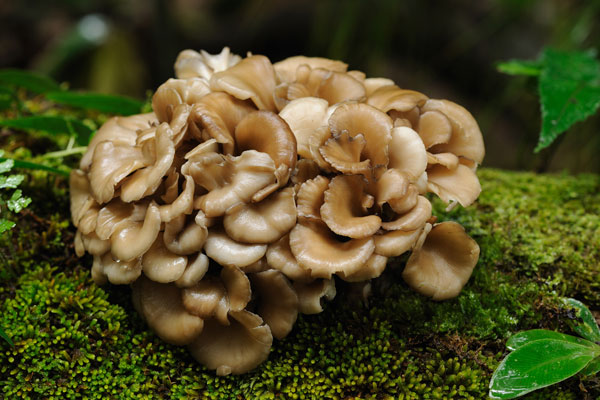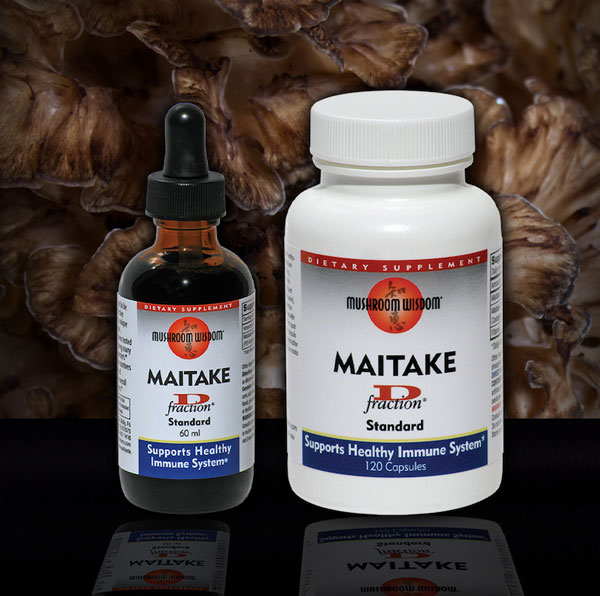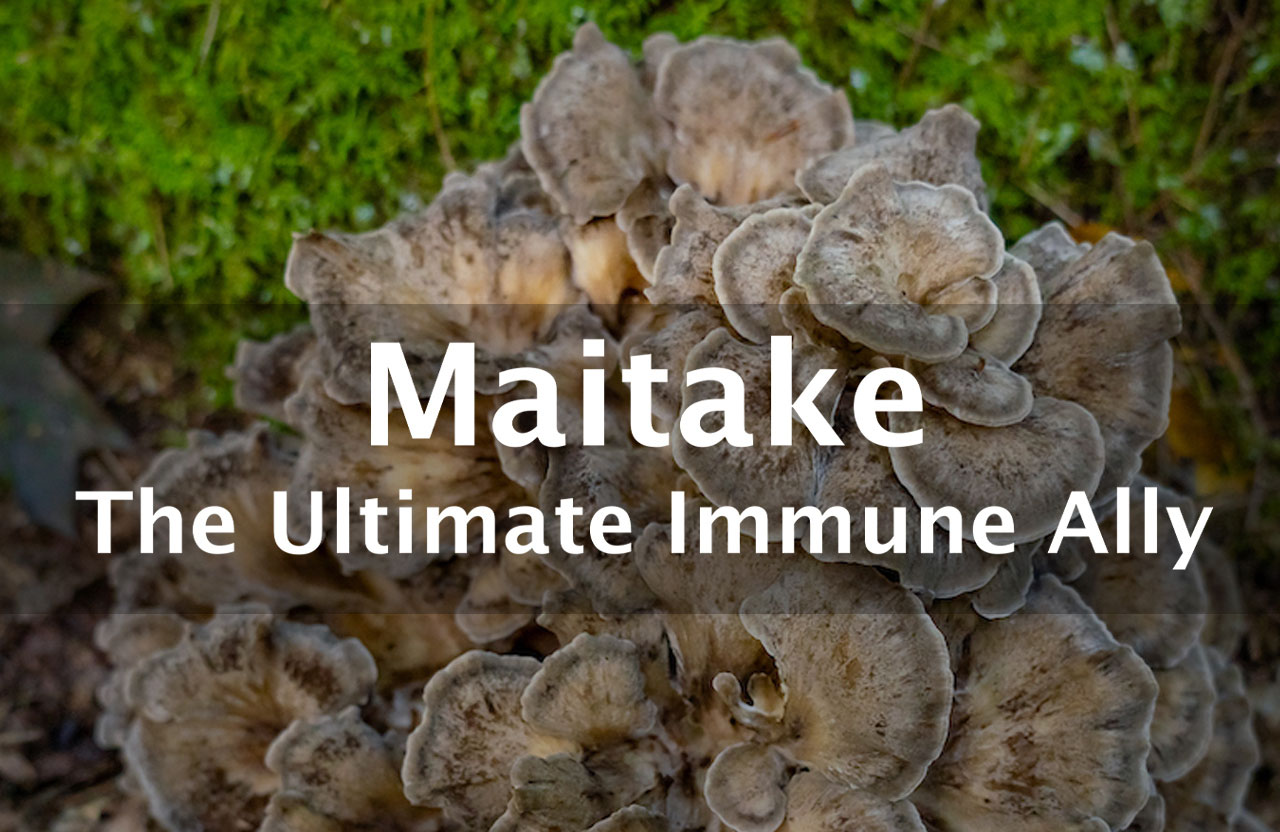Maitake – the Ultimate Immune Ally
We live in an ever shrinking world, with a growing number of health challenges, both of which make it of increasing importance that we maintain a healthy and optimally functioning immune system. Thankfully, this is an area that natural remedies, especially medicinal mushrooms, can provide us with help. Not only do we have centuries of traditional hands on use of these allies, but we also have a growing body of research supporting their use and providing us with a deeper understanding of their assistance. One standout in this area is the Maitake mushroom, (Grifola frondosa), aka Hen of the Woods or Sheep’s Head.
Maitake Mushroom
Maitake has a distinctive look, unlike the oh-so-familiar button mushroom or Shiitake. It grows in large clusters of overlapping caps that resemble tightly packed, fan-shaped fronds. One of the theories on who it got it’s Japanese name, Maitake, which translates as “dancing mushroom”, is that it was said to look like the gown of a dancing geisha. Another story about its name is that in medieval Japan folks would dance for joy upon finding the mushroom… probably because it was so highly valued that it was worth its weight in silver.
Maitake mushrooms typically grow at the base of hardwood trees, especially oaks and can be found in North America and parts of Asia. They are highly sought after for their delicious taste. They are a low calorie food that provides B vitamins, vitamin D, and the minerals potassium, selenium, and copper. They also contain significant levels of beta-glucans, the key compounds responsible for many, if not most of their health and immune supporting benefits. While Maitake is best known for its immune supporting benefits the mushroom has demonstrated free radical fighting actions as well as supporting healthy blood sugar and insulin levels, but more on these activities in a later post.*
While Maitake is best known for its immune supporting benefits the mushroom has demonstrated free radical fighting actions as well as supporting healthy blood sugar and insulin levels, but more on these activities in a later post.*
Maitake and Immune Support
Research on Maitake mushroom, suggests that it may have potential immune-supporting properties.* While more studies are needed to fully understand the mechanisms and benefits, here are some key findings from scientific research:
- Beta-Glucans: Maitake is rich in a type of polysaccharide called beta-glucans. Beta-glucans are known to have immunomodulatory effects, meaning they can help regulate and support the immune system. These compounds may enhance the activity of a number of immune cells, like macrophages, natural killer cells, and T cells, which play crucial roles in defending the body against infections and cancer.*
- Other Bioactive Constituents: While most of the research has focused on beta-glucans, there are other glucans that contribute to its benefits, as well as proteins, glycoproteins, sterols, and phenolic compounds that contribute as well.*
- Maitake D-fraction®: Considerable research has focused on one proteoglycan in particular, the Maitake D-fraction. This proteoglycan has been found to be the most potent with regards to its immune supporting activities and when compared to other mushroom products, even some that are licensed pharmaceuticals in Asia, was found to have the strongest immune actions. One study even compared the D-fraction to Reishi extract at a 50 times higher dose and found the D-fraction to still be ~3 times more effective. It has been reported to enhance the immune system through the activation of macrophages, T cells, and natural killer (NK) cells, with one study showing it increased NK cell activity.
 Maitake D-fraction influenced the balance between T lymphocyte subsets Th-1 and Th-2, decreasing the activation of B cells and potentiating the activation of helper T cells, thus enhancing cellular immunity. Another key discovery was the oral bioavailability of the Maitake D-fraction.* These types of compounds are usually notoriously poorly assimilated but not so with Maitake. In fact, the research found the oral to be about as effective as injected use.
Maitake D-fraction influenced the balance between T lymphocyte subsets Th-1 and Th-2, decreasing the activation of B cells and potentiating the activation of helper T cells, thus enhancing cellular immunity. Another key discovery was the oral bioavailability of the Maitake D-fraction.* These types of compounds are usually notoriously poorly assimilated but not so with Maitake. In fact, the research found the oral to be about as effective as injected use. - Stimulation of Cytokine Production: Maitake extracts containing beta-glucans, have been shown to stimulate the production of certain cytokines (chemical messengers of the immunes system) in both in vitro (laboratory cell culture) and in vivo (animal and human) studies. For example, Maitake extracts have been found to increase the production of interleukin-1 (IL-1), interleukin-2 (IL-2), interferon (IFN)-γ and tumor necrosis factor-alpha (TNF-alpha), among others while suppressing IL-4.*
- Immunomodulatory Effects: Studies in both animal models and human cells have shown that Maitake mushroom extracts containing these beta-glucans can stimulate the production of cytokines, which are signaling molecules that help coordinate immune responses. This suggests that Maitake may have the potential to enhance the body’s immune defenses. Maitake’s ability to enhance cytokine production is often regarded as the reason for its immunomodulatory effect.*
- Healthy Inflammatory Response: In a study focusing on the structural properties and anti-inflammatory activity of purified polysaccharides from Grifola frondosa, it was found that these polysaccharides, particularly β-glucan, supported a healthy inflammatory response in the lower GI. The study showed that these polysaccharides prevented decreases in colon length and levels of leukocytes, platelets, and neutrophils, as well as decreased the expression of pro-inflammatory cytokines in mice.*
- Clinical Studies: While natural products are often lacking in clinical support, there have been a few clinical trials involving Maitake mushroom extracts. In one small study, participants who took Maitake mushroom extract as a complementary therapy showed improvements in immune function.*
- Adjunct Assistance: Some research has suggested that Maitake mushroom extracts, when used in combination with some conventional treatments, may have a positive impact on immune function and quality of life These effects are thought to be related to the immune-enhancing properties of Maitake’s constituents.*

Not All Maitake Extracts the Same
 It’s important to note that the effects of Maitake on cytokines and other immune factors may vary based on factors like the specific Maitake extract used, dosage, and the individual’s health condition. Maitake D-fraction has been used for decades and is supported by independent research. The above findings underscore the significant therapeutic potential of Maitake D-Fraction, particularly in enhancing immune function thereby supporting its use in various health applications. It can be used in lower doses to ready the immune system and bumped up when looking for the little extra boost to one’s immune system.* As always though, individuals with specific health concerns should consult with healthcare professionals before incorporating Maitake supplements or extracts into their regimen.
It’s important to note that the effects of Maitake on cytokines and other immune factors may vary based on factors like the specific Maitake extract used, dosage, and the individual’s health condition. Maitake D-fraction has been used for decades and is supported by independent research. The above findings underscore the significant therapeutic potential of Maitake D-Fraction, particularly in enhancing immune function thereby supporting its use in various health applications. It can be used in lower doses to ready the immune system and bumped up when looking for the little extra boost to one’s immune system.* As always though, individuals with specific health concerns should consult with healthcare professionals before incorporating Maitake supplements or extracts into their regimen.
Wu J-Y, Siu K-C, Geng P. Bioactive Ingredients and Medicinal Values of Grifola frondosa (Maitake). Foods. 2021; 10(1):95. https://doi.org/10.3390/foods10010095

